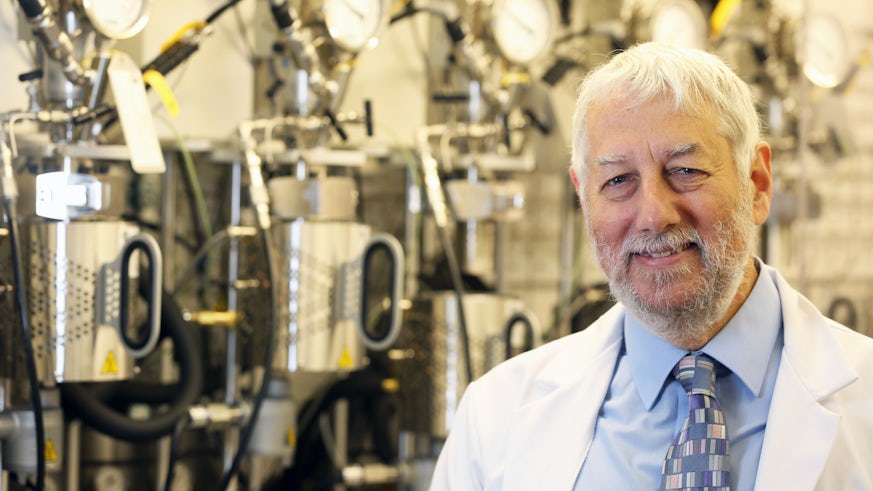Gold catalyst hits market in China
5 January 2016

Gold catalyst is commercialised by Johnson Matthey as world-leading experts descend on Cardiff for annual conference.
A novel catalyst
discovered by experts from Cardiff University has
been successfully commercialised by a UK chemicals company.
Scientists describe the catalyst, which is derived from gold, as having
the potential to save lives, improve health and clean up the environment. Their
research shows that it has an unparalleled ability to speed up many reactions and
make products cheaper, cleaner, safer and more sustainable.
The gold catalyst is being manufactured by Johnson Matthey at a purposely built factory in Shanghai, China, in order to make vast quantities of vinyl chloride (VCM) – the main ingredient of PVC.
It is the first time in over 50 years that a complete overhaul in catalyst formulation has been implemented for the production of any commodity chemical.
The remarkable ability of gold to speed up reactions was first discovered by Professor Graham Hutchings and his team at the Cardiff Catalysis Institute (CCI).
The team’s research identified that gold could be an ideal material to facilitate the production of VCM, which since the 1950s has been produced using a mercury catalyst. Not only is mercury extremely harmful to the environment, the World Health Organisation has identified the chemical as posing a serious threat to human health.
Since this discovery, the CCI has worked closely with Johnson Matthey who have trialed the gold catalyst in a pilot plant and reactors in China, and a full-scale factory is now in place to produce hundreds of tons of gold catalyst for the production of VCM.
The CCI and Johnson Matthey were awarded the ‘Innovative Product of the Year Award’ at the IChemE’s Global Awards ceremony in Birmingham last month for this commercialisation.
The success comes almost a year since the CCI signed a landmark partnership with the Max Planck Society to develop a new programme of catalysis research as part of the Society’s Maxnet Energy Network, putting Cardiff University research at the heart of Germany’s leading research organisation.
The annual CCI conference, which is taking place on 5-6 January, will focus on the Maxnet programme and showcase the work of the partnership to a host of world-leading experts in catalysis.
Attending the event will be Professor Ferdi Schueth, Vice President of the Max Planck Society, Robert Shloegl, Director of Maxnet, and a range of industry representatives from Exxon Mobil, Haldor Topsoe, Sabic, Invista, Johnson Matthey, Shell, Solvay and Syngenta.
Professor Graham Hutchings, Director of the CCI, said: “This year’s conference gives us the opportunity to reflect on the work of Maxnet over the past 12 months and showcase our new collaborative research programmes to world-leading experts in catalysis.
“The conference gives us a perfect platform to strengthen our excellent relationships with the Max Planck Society and confirm Cardiff's position as a world leader in catalysis research."

